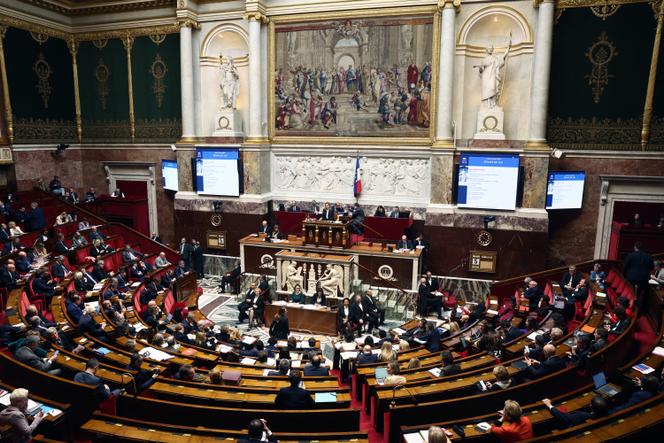


France's Assemblée Nationale unanimously voted on Wednesday, March 6 for a bill intended to recognize and compensate homosexual people for the damage caused by discriminatory laws in force between 1942 and 1982.
The Assemblée reintroduced the principle of financial compensation for people convicted of homosexuality, and the creation of a commission to rule on requests for financial compensation, which the Sénat had abolished. The text was initially put forward by Socialist Senator Hussein Bourgi.
In his opening remarks in the Assemblée, Justice Minister Eric Dupond-Moretti asked for forgiveness for those discriminated against: "It is high time to (...) say this evening in the name of the French Republic: sorry, sorry to the people, the homosexuals of France who suffered 40 years of this completely iniquitous repression. Our Republic is never more beautiful than when it recognizes that it has lost the thread of its founding principles: liberty, equality and fraternity," he declared.
In the Sénat, Dupond-Moretti had agreed with the rapporteur, describing the "practical implementation" of the compensation measure as "extremely complex." However, in his remarks in the Assemblée, he said that he "understands and shares" the "desire (...) that compensation be precisely defined in the law and implemented by an ad hoc commission."
He drew attention to the fact that this commission would be faced with "evidentiary difficulties." "It won't be easy for some people to prove that they actually spent a certain amount of time in prison, or that they paid the fine they were sentenced to. It is therefore essential that in the final drafting of this text, we take care not to create disappointments that would result from these evidentiary difficulties," he warned.
The text's rapporteur, Socialist lawmaker Hervé Saulignac, felt that recognition could not go without reparations. "I think France is capable of doing what Germany has done, what the UK has done, what Ireland has done, what Spain has done, what Canada has done," he argued, estimating that the number of people benefiting from reparations could be between 200, as in Spain, and 400, as in Germany. The text will now resume its legislative journey through the Sénat.
Translation of an original article published in French on lemonde.fr; the publisher may only be liable for the French version.
